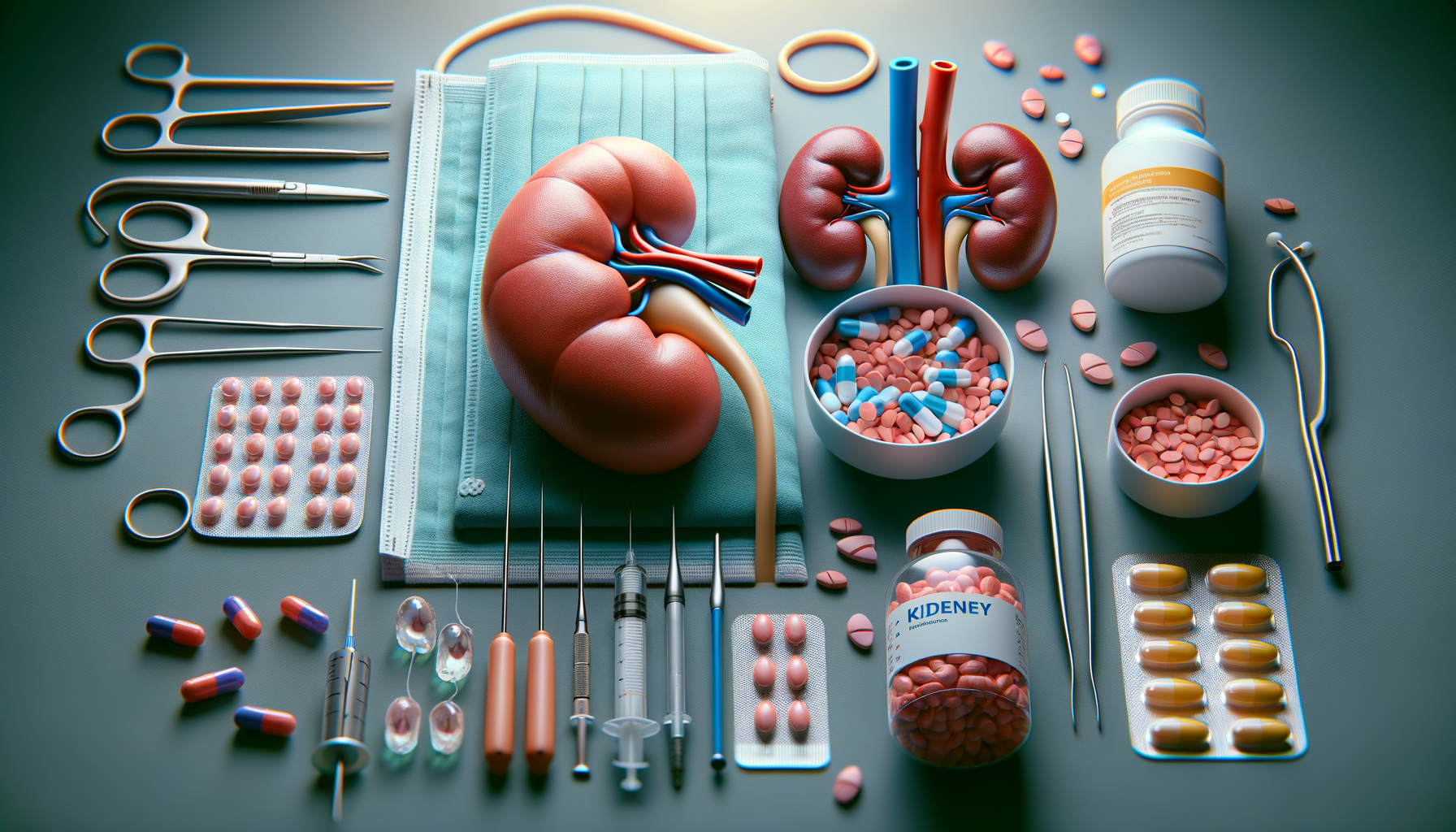Introduction to Kidney Disease Treatment
Kidney disease is a critical health issue affecting millions globally. The kidneys play a vital role in filtering waste from the blood, balancing fluids, and maintaining overall health. When these organs are compromised, it can lead to serious health complications. Understanding the various treatment options is essential for managing the disease effectively and improving the quality of life for those affected.
Lifestyle Modifications for Kidney Health
One of the first steps in managing kidney disease involves making significant lifestyle changes. These modifications can slow the progression of the disease and help manage symptoms. Key lifestyle changes include:
- Dietary Adjustments: Reducing sodium, potassium, and phosphorus intake can help prevent further damage to the kidneys.
- Regular Exercise: Engaging in physical activity can help manage blood pressure and blood sugar levels, which are crucial for kidney health.
- Hydration: Drinking adequate water supports kidney function by flushing out toxins.
- Avoiding Smoking and Limiting Alcohol: These substances can exacerbate kidney damage and should be minimized or avoided.
By adopting these changes, individuals can take proactive steps in maintaining their kidney health and potentially delaying the need for more intensive treatments.
Medications and Medical Interventions
For those with kidney disease, medications play a vital role in managing symptoms and slowing disease progression. Common medications include:
- Blood Pressure Medications: Controlling blood pressure is crucial as high blood pressure can worsen kidney damage.
- Diuretics: These help reduce fluid buildup in the body, easing the burden on the kidneys.
- Phosphate Binders: These medications help control phosphorus levels in the blood.
In more advanced cases, medical interventions such as dialysis or kidney transplantation may be necessary. Dialysis performs the function of the kidneys by removing waste from the blood, while a transplant offers a more permanent solution for those eligible.
Alternative and Complementary Therapies
Beyond conventional treatments, some patients explore alternative and complementary therapies to support kidney health. These can include:
- Herbal Supplements: Some herbs, like nettle and dandelion, are believed to support kidney function, but it’s important to consult with a healthcare provider before use.
- Acupuncture: This traditional Chinese practice may help alleviate symptoms like pain and improve overall well-being.
- Mind-Body Practices: Techniques such as yoga and meditation can reduce stress, which is beneficial for overall health and kidney function.
While these therapies can provide additional support, they should be used in conjunction with, not as a replacement for, standard medical treatments.
Future Directions in Kidney Disease Treatment
The field of kidney disease treatment is constantly evolving, with research focused on developing new therapies and improving existing ones. Emerging areas include:
- Gene Therapy: Research is underway to explore the potential of gene therapy in correcting genetic defects that cause kidney disease.
- Regenerative Medicine: Scientists are investigating the use of stem cells to regenerate damaged kidney tissue.
- Innovative Dialysis Techniques: Advances in dialysis technology aim to make treatments more effective and less burdensome for patients.
These future directions hold promise for more effective management and potential cures for kidney disease, offering hope to millions of affected individuals worldwide.




Leave a Reply